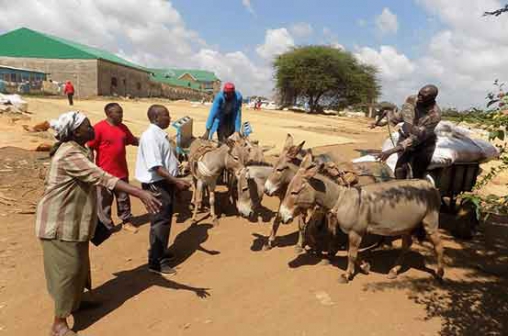×
The Standard e-Paper
Stay Informed, Even Offline

Cases of theft of donkeys are on the rise in Mwea region of Kirinyaga County, which could spell doom to the hundreds of owners and their employees.
Farmers are now up in arms following a spate of disappearances of their beasts of burden, which they suspect are being illegally slaughtered in the neighbourhood or transported to licenced abattoirs outside the county.







